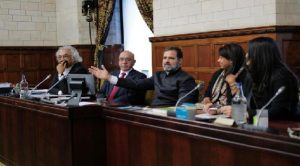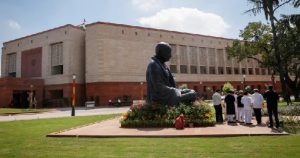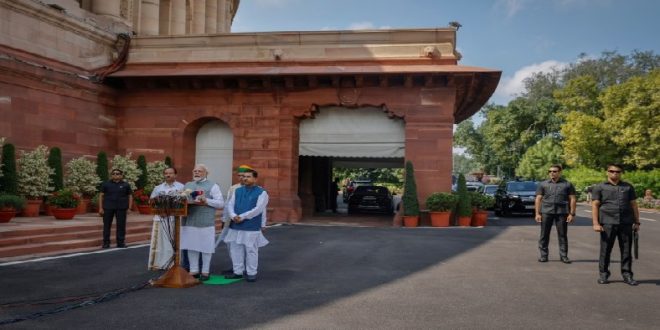19-09-2023
Bureau Report + Agencies
NEW DELHI: A “special” five-day session of India’s parliament is being held amid growing disquiet in the country over parliamentary processes being undermined in the world’s most populous democracy.
 In his speech on Monday, Prime Minister Narendra Modi recalled the 75-year history of the Indian parliament and announced that the remaining session will be held in a new parliament building inaugurated in May despite an opposition boycott.
In his speech on Monday, Prime Minister Narendra Modi recalled the 75-year history of the Indian parliament and announced that the remaining session will be held in a new parliament building inaugurated in May despite an opposition boycott.
The junior minister for parliamentary affairs, Arjun Ram Meghwal, said Monday’s session could be the last in the British-era parliament building as part of the Hindu nationalist government’s project to reject colonial legacies.
After much pushback for keeping members of parliament in the dark, Modi’s government last week released a “tentative list” of agenda items for the special session, which initially included the passage of five pieces of legislation, but later increased to eight.
Opposition parliamentarians, however, say they are convinced the government also has “surprise legislations” up its sleeve.
At least two of the initially listed legislation are controversial, one seeks tighter government control over the press, and the other on the Election Commission of India (ECI). Indian media reports on Monday said the bill on the  appointment of election commissioners will not be considered in the special session but the laws, if passed, could have a bearing on the general elections, due by April, in which the ruling Bharatiya Janata Party (BJP) will seek a third term.
appointment of election commissioners will not be considered in the special session but the laws, if passed, could have a bearing on the general elections, due by April, in which the ruling Bharatiya Janata Party (BJP) will seek a third term.
In the run-up to the 2024 polls, the opposition parties, led by the Indian National Congress, have jointly put up a “fight for saving democracy” under an umbrella alliance, named INDIA, the acronym for Indian National Developmental Inclusive Alliance.
Speculations are rife that the government is contemplating changing India’s official name to just Bharat, thereby discarding its European counterpart. The idea is seen as part of the BJP’s broader narrative aimed at “decolonizing” Indian minds and pushing for the dominance of the Hindi language.
The idea quickly elicited a divided response in the country, mostly along political lines. Many believe it is simply a gimmick, aimed at igniting nationalist sentiments, dividing and polarizing voters before the elections.
 Pressmediaofindia
Pressmediaofindia




